Year 12 Course Finder
Click on the icons to find out more about the courses we offer in Year 12-13.
A Level Chemistry
Specification
Exam Board: OCR
Qualification
A Level Chemistry A (H432)
Aims of the course
Chemistry sometimes is called the “central science” because it connects other sciences to each other.
Chemistry helps you to develop research, problem solving and analytical skills. It helps to you challenge ideas and show how you worked things out through logic and step-by-step reasoning. Chemistry often requires teamwork and communication skills too, which is great for project management.
This course is designed to be stimulating, enjoyable and challenging. We want you to develop a passion for the subject and understand its practical relevance, as well as learn from the experiences of those already in the industry. Class time is supported by trips, conferences, spectroscopy workshops with UCL and talks by relevant professionals in the industry. Due to the networking opportunities available to you at the UTC this makes you a very competitive candidate for any degree or apprenticeship.
How is it taught?
Students will study a two-year syllabus (OCR A: H432) for A level Chemistry which is assessed at the end of the course by 3 examinations.
The course is taught in a stimulating and energetic way with practical opportunities interleaved into the curriculum to ensure as manyoccasions to hone these skills as possible so all our Chemists are proficient and skilled practitioners.
The course is academic and students will be expected to complete pre-reading and read books and journals from beyond the curriculum to develop their scientific literacy and love of Chemistry.
Course units and texts studied
All of the below papers will be taken at the end of Year 13.
- Paper 1:Periodic Table, Elements and Physical Chemistry
- Paper 2:Synthesis and Analytical Techniques
- Paper 3:Unified Chemistry
How is it assessed?
- Paper 1:100 marks. Assessment includes multiple choice, structured and extended response questions from Module 1, 2, 3 and 5, which relate to inorganic and physical chemistry, fundamentals of Chemistry and practical skills.
Duration, 2h15min. 37% - Paper 2:100 marks. Assessment includes multiple choice, structured and extended response questions from Module 1,2,4,6, which relate to organic chemistry, analytical techniques, fundamentals of Chemistry and practical skills.
Duration: 2h15min. 37% - Paper 3:70 marks. Assessment includes synoptic questions that are structured or extended response. The synoptic questions may draw on knowledge from any of the 6 modules studied.
Duration 1h30min. 26% - Practical Endorsement:Students demonstrate competency in 12 Practical Activity Group areas over the course of two years. The assessment of practical competency will be reported separately on students’ certificate as either a ‘pass’ or a ‘fail’. This standalone certification has no bearing on the A Level grade, however universities expect a ‘pass’ in order to progress onto science-based courses.
Suggested reading
- The Disappearing Spoon, Sam Kean
- Uncle Tungsten, Oliver Sachs
Destinations and future careers
Students wishing to study medicine, dentistry, pharmacy, biochemistry, chemical engineering or veterinary or pharmacological sciences at university must take A-level Chemistry. Chemistry A Level is also a very useful A level to study any scientific degree e.g. Optometry, Biomedical Sciences, Physiotherapy.
Transition Materials
Science activity – Clinical Skills
A Level Politics
Exam Board
Edexcel
Qualification
A Level Politics
Aims of the course
A Level Politics shows how the political decisions made by governments around the world have a direct impact on our lives. It will help you to know your rights; clarifies why you believe what you do; enables you to understand your nation’s parties and prepares you for adult life.
How is it taught?
Through a range of debates, reading, discussions and research you will understand how and why contemporary society is shaped as it is. Through watching the news, engaging with political programmes and reading newspapers, you will develop an appreciation for the intricacies of governments around the world.
Course units and texts studied
- Unit 1: UK Politics
- Unit 2: UK government
- Unit 3: Comparative Politics
How is it assessed?
- 3 examinations, 2 hours each, 33% each
- Throughout the course, students will be assessed through example and past paper exam questions, comprising of 12 and 30m questions
Suggested reading
- In Defence of Politics, Bernard Crick
- What’s Left?: How Liberals Lost Their Way, Nick Cohen
- Who Runs This Place?: The Anatomy of Britain in the 21st Century, Anthony Sampson, John Murray
- Why Politics Matters: Making Politics Work, Gerry Stoker
- The End of History, Francis Fukuyama,
- The Right Nation: Why America is Different, John Micklethwait
- The Ideas that Conquered the World, Michael Mandelbaum
- After Blair: David Cameron and the Conservative Tradition, Kieron O’Hara, Icon,
- How Democratic is the American Constitution?, Robert Dahl
Destinations and future careers
· Civil Service
· Government social research officer
· Policy officer
· Politician/ politician’s assistant
· Public affairs consultant
· Public relations account executive
· Social researcher
· Business development manager
· Detective
· Local government officer
· Market researcher
· Newspaper journalist
· Public relations officer
Stockbroker
Transition Materials
Politics acitivty – Year 11 Transition Pack
“Politics has helped me improve my debating skills- I now know why I think the way I do but I also understand why others have different viewpoints – I use this to help my argument!” Year 12 student
A Level Psychology
Exam Board
AQA
Qualification
A Level Psychology
Aims of the course
Psychology is the scientific study of mental life and human behaviour. It helps explain how we think, feel and act both individually and as part of a social group. By understanding psychology, we have the capacity to predict behaviour and improve society.
How is it taught?
The study of Psychology is based on scientific research principles. Students will learn through a range of methods including creating and practicing their own experiments, analysing and evaluating famous psychological case studies and observations, and conducting presentations using statistical data to explain or predict behaviour.
Course units and texts studied
- Paper 1: Social influence, memory, attachment, psychopathology
- Paper 2: Approaches, biopsychology, research methods
- Paper 3: Issues and debates; relationships; schizophrenia; aggression
How is it assessed?
- 3 examinations, 2 hours each
- Throughout the course, students will be assessed through example and past paper exam questions, comprising of 4, 6, 8, and 16 mark questions.
Suggested reading
- ‘A beautiful mind’ (2001) – useful for schizophrenia
- ‘Mockingbird don’t sing’ (2001) – useful for privation
- ‘Adaptation’ (2002) – Personality disorder
- ‘Amelie’ (2001) – Schizotypal Personality Disorder
- ‘Analyze this’ (1999) – Depression
- ‘As good as it gets’ (1997) – OCD
- ‘The Breakfast Club’ (1985) – Abnormality, Conformity
- ‘Girl Interrupted’ (1999) – Abnormality
- ‘The Quiet Room’ (1996) – Attachment
Destinations and future careers
· Clinical psychologist
· Counsellingpsychologist
· Educational psychologist
· Forensic psychologist
· Further education teacher
· Health psychologist
· High intensity therapist
· Occupational psychologist
· Psychological wellbeing practitioner
· Sport and exercise psychologist
Transition Materials
Psychology activity – Year 11 Transition Pack
“I love Psychology because it allows us to understand why people behave in the way that they do. We use scientific knowledge to explain patterns of behaviour- it makes us feel like we have an insight into the human mind- it’s fascinating!” Year 12 student
Religious Studies
Exam Board
N/A
Qualification
N/A
Aims of the course
Religious Studies at Mulberry UTC enables students to engage in the study of religion and belief whilst relating it to the specialist pathways they are undertaking. The subject allows learners to reflect on and develop their own values, opinions and attitudes on a range of topics, whilst developing their own identities as confident and creative young people.
How is it taught?
The Religious Studies curriculum is taught in three distinct ways:
- Three dedicated drop-down days during the academic year
- ‘Spiritual and Personal Development’ sessions run in tutor time once a week
- Collective worship in assemblies across all year groups
Course units and texts studied
- Religious Studies Day One: Faith in Film
Student will: gain insights into ways of expressing important religious ideas; understand the influence of religion in art/film; consider the value of religious imagery; identify the religious ideas being portrayed in film extracts; evaluate the realism and impact of particular portrayals of founders and leaders; assess the value and effectiveness of the film in communicating the essence of religion.
Religious Studies Day Two: Science and Religion
Students will: explore the difference between scientific knowledge and religious knowledge; explain the nature of ‘truth’ in each; discuss if religion and science are compatible, in conflict or mutually exclusive (co-exist but kept completely separate)
Religious Studies Day Three: Religion Charity and Conflict
Students will: explore the work of global religious charities and their work in conflict zones and upholding human rights around the world.
Tutor time include discussion topics sure as:
- What do different religions state about fairness and tolerance?
- Who are the Amish and what is their way of life?
- Does God exist?
- How does spirituality affect people’s lives?
Mulberry UTC also continues to link with St Joseph’s Hospice and other local religious organisations to support the delivery of religious studies.
How is it assessed?
Throughout the year, students will be assessed through reflections made on their e-portfolio in relation to their learning on the three religious education days, as well as the spiritual development reflection activities completed in tutor time.
Destinations and future careers
Careers related to studying Religious Studies include: Teacher; Social Worker Community development worker; or Family support worker; International aid/development worker; Social researcher; Youth worker; Charity fundraiser; faith advocate.

























